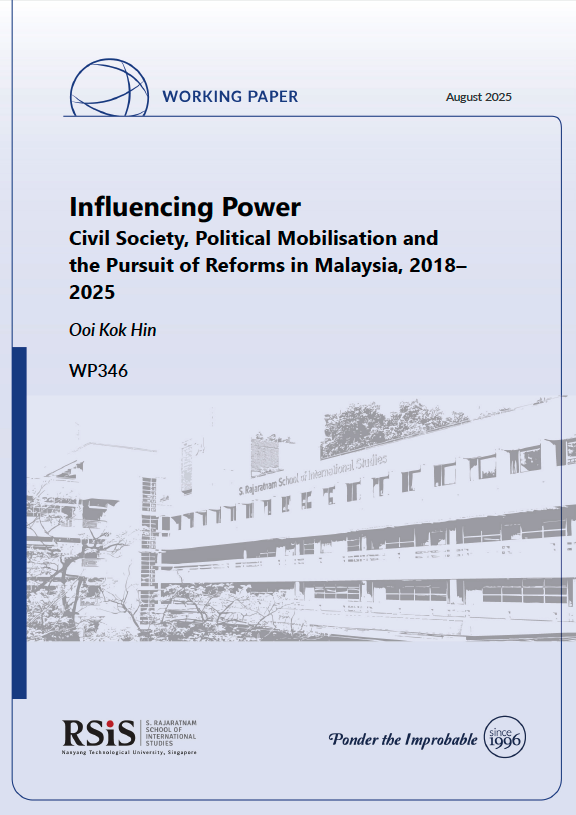20 August 2025
- RSIS
- Publication
- RSIS Publications
- Influencing Power: Civil Society, Political Mobilisation and the Pursuit of Reforms in Malaysia, 2018–2025
Abstract
This paper advances a thesis of seven conditions that enable or constrain Malaysian civil society organisations (CSOs) in influencing governance, policy, and political reform from 2018 to 2025. It also proposes a heuristic typology of the way CSOs operate – a fluid categorisation where actors shift between policy-driven and identity-driven actors, and between strategies of institutional engagement and public mobilisation. Drawing on the turbulent period following Malaysia’s historic 2018 transfer of power, the analysis identifies seven structural conditions (political allies, leverage, sustainability, institutionalisation, catalysts, infrastructure, and diffusion) that enable or constrain civil society influence and illuminate how advocacy groups navigate the shifting political opportunity structures of a transitional democracy. Comparative case studies of BERSIH, a reformist pro-democracy coalition, and ISMA, a conservative Islamist organisation, reveal how ideologically opposing actors navigate these conditions to advance their agendas. The post-2018 opening expanded formal channels of influence for reformist actors but also exposed them to strategic dilemmas and risks, including co-optation, demobilisation, and fatigue. More broadly, this paper contributes to understanding how CSOs adapt strategies in transitional democracies and how shifting political conditions recalibrate the trade-offs between insider/cooperative engagement and outsider/confrontational activism.

Abstract
This paper advances a thesis of seven conditions that enable or constrain Malaysian civil society organisations (CSOs) in influencing governance, policy, and political reform from 2018 to 2025. It also proposes a heuristic typology of the way CSOs operate – a fluid categorisation where actors shift between policy-driven and identity-driven actors, and between strategies of institutional engagement and public mobilisation. Drawing on the turbulent period following Malaysia’s historic 2018 transfer of power, the analysis identifies seven structural conditions (political allies, leverage, sustainability, institutionalisation, catalysts, infrastructure, and diffusion) that enable or constrain civil society influence and illuminate how advocacy groups navigate the shifting political opportunity structures of a transitional democracy. Comparative case studies of BERSIH, a reformist pro-democracy coalition, and ISMA, a conservative Islamist organisation, reveal how ideologically opposing actors navigate these conditions to advance their agendas. The post-2018 opening expanded formal channels of influence for reformist actors but also exposed them to strategic dilemmas and risks, including co-optation, demobilisation, and fatigue. More broadly, this paper contributes to understanding how CSOs adapt strategies in transitional democracies and how shifting political conditions recalibrate the trade-offs between insider/cooperative engagement and outsider/confrontational activism.






